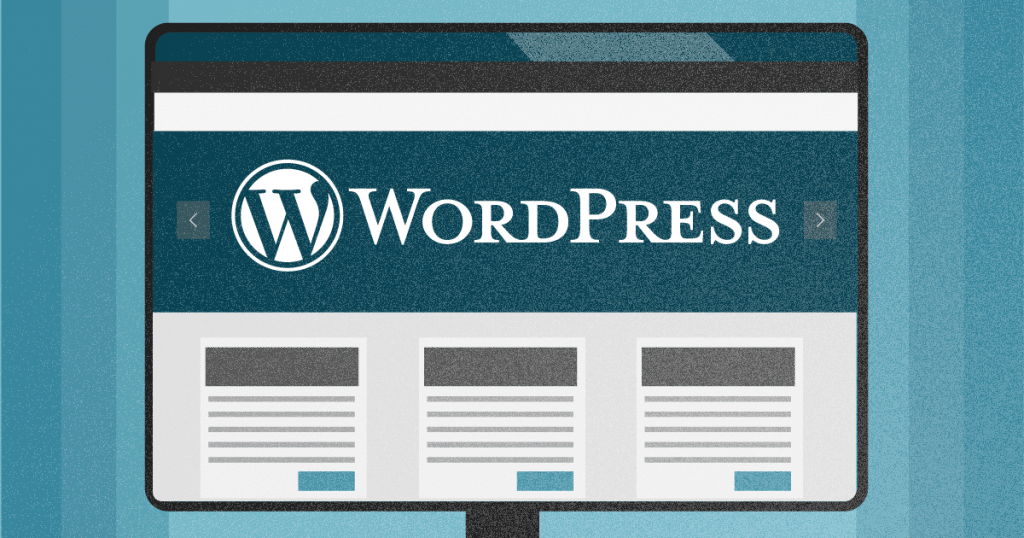Are you lost in the WordPress.com vs. WordPress.org conversation? Well, we’ll keep you up to date with this article.
WordPress is the most popular platform in the world for hosting, building, and managing content-oriented websites. It’s easy to use and offers complete tools to deliver a great user experience.
You probably already know that. But when a business owner or a C-level professional decides to take the step of improving their brand’s digital presence, the very first search on Google can be a little confusing.
That’s because WordPress has two main services: WordPress.com vs. WordPress.org. What are their differences? Which one is better for you? Let’s solve these questions once for all in the following topics:
- What is WordPress.com?
- What is WordPress.org?
- What are the main differences between them?
- What are the pros and cons of each one?
- Which should you use?
What is WordPress.com?
When you enter WordPress.com, the big statement right off the bat is “Welcome to the world’s most popular website builder”. This indicates what the solution is all about.
WordPress.com is a platform for hosting and building your website inside their complete yet simple dashboard. You don’t need to hustle with setting up a server, paying for multiple services, or even designing your layout.
All you have to do is to pick a theme, customize it to fit your brand persona, and start creating content. WordPress.com also gives you managing tools like comment moderation and traffic reports to improve SEO and generate new leads.
What is WordPress.org?
If WordPress.com gives you a complete digital environment to host and build your website, WordPress.org offers the same platform so you can do it for yourself.
That’s right, in this address, what you get is the open-source software that is the base of WordPress.com itself. However, instead of using their servers, anyone is free to install it in their own infrastructure.
That means WordPress.org isn’t ready to go; it requires some kind of knowledge and specialized help. But, on the other hand, it gives a lot more freedom for businesses to build the perfect website. Let’s talk more about that.
What are the main differences between them?
Maybe taking this discussion to a non-virtual scenario would be better to understand the main differences between both solutions.
Imagine you are about to invest in opening a restaurant. There are two ways to deal with the need for a place to install it.
First, you can buy or rent an already built location. It is simple and quick. You do some remodeling, decorate the place, set up the kitchen and tables, and you are ready to start.
But you have to mold your business around the limitations of that building — kitchen disposition, logistics, where the wine cellar will fit, etc.
Another slower but more customized way of doing that is buying a lot and building the restaurant from the ground up.
That way, you can shape the physical space exactly like you think it is better for the business — where everything will go and how the flow will give a better experience for workers and clients.
WordPress.com vs. WordPress.org options are just like that. The dot-com is an already built environment for you to set up and run your corporate website, while the dot-org variant gives you the building blocks to raise it from the ground.
All the differences come from those distinct concepts. WordPress.com is focused on simplicity and efficiency. WordPress.org is focused on customization and flexibility.
What are the pros and cons of each one?
The best way to understand once for all the differences between WordPress.com vs. WordPress.org is by analyzing what they have to give. So let’s take a look at what are the strengths and weaknesses of both of them.
WordPress.com gives you an easy start but less freedom
With WordPress.com, you can set up your company’s blog, site, or e-commerce in a matter of minutes. It is free to start and the main features are always available.
But there is a catch: this simple and free solution has a series of limitations that can avoid you from getting all your SEO and Digital Marketing strategies up running.
For example, your website’s address will be under a subdomain, like ‘business.wordpress.com’. This is bad for ranking your pages and gives an unprofessional look to your brand.
The free version also limits disk space (3GB) and doesn’t let you monetize pages. The plugins you can use — tools that improve your building and managing capacity — are restricted to the default ones available on the platform.
To remove these limitations for commercial use, you have to pay a monthly fee, as well as the cost of your domain. But even then some of these limitations will always be there.
WordPress.org gives you more tools but you’re on your own
The main cons in WordPress.org are exactly what makes its pros. As we said, this variant is the open-source software used to run all the platform’s services and dashboard.
So you will need your own hosting solution where to install your CMS (Content Management System). After doing that, you have the same features as the dot-com hosting but without its restrictions.
That means full access to third-party plugins, fully customized dashboard and website, and all the tools you need to monetize, improve, and measure indicators.
Even if the software itself is free, there is no way to set up a functional website without paying for a hosting provider — there are free options but with similar conditions to WordPress.com.
The benefit in this case is the freedom to do some research and choose a web host that offers what you need, by paying from as low as $50 a year.
WordPress.com vs. WordPress.org: which should you use?
When we talk about platforms as complete and multi-purposed as WordPress, our answer to this question is usually never conclusive. The best solution is the one that fits your business better.
But it is safe to say WordPress.org is the most important investment for those who want to see their digital strategies take off.
WordPress.com limits a lot of what you can do and this can hinder your SEO capabilities. A good recommendation, in this case, would be to start with it to mark your presence online and, then, find the right partners to help you set up a WordPress-based website for your company.
Therefore, WordPress.com vs. WordPress.org is a goal-oriented choice. If you plan to give your business the online visibility it needs, you’ll always want to go with the most robust and customizable solution.
How about starting now? To do it right, you can check out our exclusive WordPress guide for corporate blogs!








